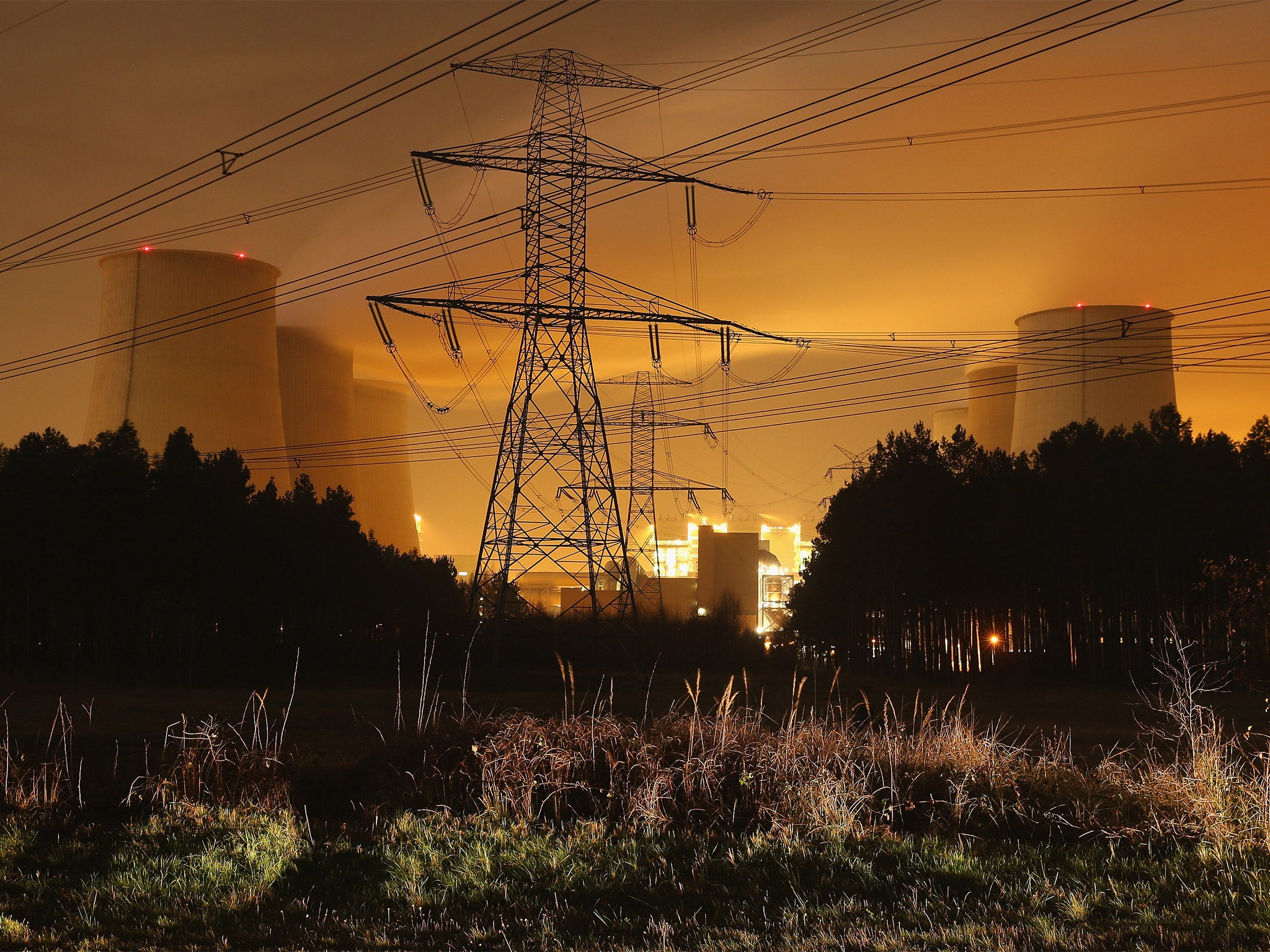Cheaper energy on the way, but it's not all sunshine and rainbows
Solar power will help bring down electricity prices over the next five years, according to a new report. But it’s cheap imports of European ‘dirty power’ that will lower them the most

It’s fitting on a sunny summer’s day to have some good news on the solar energy front. The amount of electricity generated from the sun’s rays in the UK is growing so quickly that the increase in supply will help pull down energy prices over the next five years.
That’s one of the conclusions of a report by Moody’s, which predicted that wholesale electricity prices per MWh in the UK would fall from £45.90 today to somewhere between £42 and £46 by 2020.
More solar power and greater energy efficiency will reduce the burden placed by British demand on traditional power stations by nearly 2 per cent – the energy produced by one average coal-producing unit – each year.
Not only that, but these are just the averages, spread out across the hours of the day. The impact of solar will be even more marked during the peak sunny hours of the day in summer. Moody’s expects that by 2020 solar power in the UK will contribute more than 13 per cent of demand.
Enough solar plants to generate 1.3 gigawatts of power have been set up in the first quarter of this year alone. But don’t get too carried away at the thought of Britain becoming the new Sweden. The main reason prices are coming down here is that we’ll be importing massively more cheap energy from new undersea interconnectors – huge electricity cables being built under the Channel to Europe.
That’s OK, I hear you say. With their reputation for green nuclear and renewable energy, France, Germany and the Nordics will be filling our homes with even cleaner power, right? Not quite.
According to Moody’s, while those regions do work hard to provide clean energy to their own populations, the incremental output they’ll be sending to us will tend to come from low-cost, dirty coal.
That, along with Britain’s carbon tax (known as Carbon Price Support), is why it’s cheaper than our home-produced stuff. The net result: we Brits will be using more dirty power from the continent while reducing output from our own cleaner, gas-fired generators.

As Graham Taylor, the report’s author and a senior analyst at Moody’s, says: “We expect gas generation to continue to decline in the UK, replaced by greater imports of electricity from Europe. At the margin, this is likely to mean that comparatively clean, gas-fired generation in the UK will be replaced by comparatively dirty, coal-fired generation in Europe.”
While cheaper power is good news in itself, this is not exactly what Britain’s carbon-reduction plan was intended for. Just how much impact does Carbon Price Support have on our wholesale prices? According to data from Moody’s and Bloomberg, a great deal.
Forgive the flurry of statistics here, but they illustrate the situation well: the CPS, enacted in 2013, is set at £18 a tonne of carbon emitted to 2020. UK generators have to pay it on top of the EU tariff – likely to come in at around £5.20 a tonne.
Moody’s estimates the CPS adds £7.25 per MWh to the cost of UK gas generation and £14.50 to coal. You could translate this into 0.7p and 1.5p/kWh, quite a chunk of the 11-12p/kWh retail price.
But the CPS is not the only reason British-made energy is more expensive than that on the continent. While we in the UK have been closing down our dirty coal plants in favour of more expensive gas, the super-low price of carbon permits under the EU’s Emissions Trading System means companies across the Channel have had no real incentive to stop chugging smoke up into the atmosphere. In fact, Germany has actually been building new coal-fired generators.
That, combined with the British CPS, explains why Germany has some of the cheapest wholesale electricity prices in Europe – some £22 per MWh cheaper than Britain’s £45. Little wonder that the report predicts Scottish & Southern Energy and Centrica will continue closing thermal plants here.
The Moody’s report also debunks the scare stories about Britain running out of power. While the margin of reserves – the difference between what we could produce and the most we actually use – has halved from more than 20 per cent in 2011 to 10 per cent in 2015, it will increase to 25 per cent by 2020 once you factor in the new interconnectors coming on stream.
In short, while our increased European imports are making the planet a dirtier place, we in Britain will not be digging out the blackout candles for many a year.
Join our commenting forum
Join thought-provoking conversations, follow other Independent readers and see their replies
Comments
Bookmark popover
Removed from bookmarks